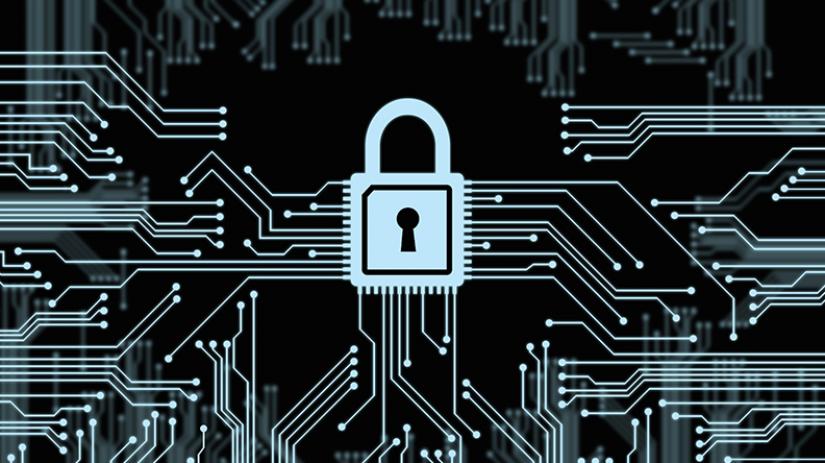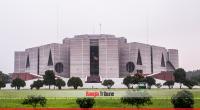
The Parliament has passed the Digital Security Act 2018, which scraps the controversial Section 57 of the ICT Act.
Concerns that it will muzzle free speech by obstructing investigative journalism, however, remain as some parts of the ICT Act have been kept in the new law.
MPs passed the Act in voice vote after Post, Telecoms and ICT Minister Mustafa Jabbar presented it on Wednesday.
Opposition MPs said that the Bill has not addressed the concerns expressed by representatives of the media as well as ignored their recommendations.
Jatiya Party MP Fakhrul Imam described the inclusion of the colonial-era Official Secrets Act as regretful and frustrating.
According to him, it will effectively hinder investigative journalism.
“Once enacted, the law will be a blow to the main spirit of the Constitution, especially the freedom of speech and media. The digital security will create insecurity for the country’s citizens,” Imam told the parliament.
Imam along with several some other opposition MPs proposed eliciting public opinions for the Bill, but it was rejected.
ICT Minister Jabbar said, however, said the opinion from the media was taken into account.
“In all steps, we attached the highest importance to the opinions of journalists. We’ve brought necessary changes as per their opinions,” he said.
Regarding the inclusion of the Official Secrets Act in the Bill, he said there is no instance about any punishment under this law.
“This law is not for suppressing or controlling the media,” Mustafa Jabbar said adding that it will only apply for containing cyber and digital offences.
The Bill included the Official Secrets Act, 1923 where any offence will be committed under the law using computer, digital device, computer network, digital network or any other digital means.
The punishment for this offence will be not more than 14 years of imprisonment or not more than Tk 2.5 million as fine or both.
If a person commits the same offence for more than once, the punishment will be life imprisonment or not more than Tk 10 million fine or both.
Under section 21, the Bill included the definition of "spirit of Liberation War".
The definition of the spirit of the Liberation War as proposed by the committee is: "The high ideals of nationalism, socialism, democracy and secularism, which inspired our heroic people to dedicate themselves to, and our brave martyrs to sacrifice their lives in the national liberation struggle."
The proposed law made the inclusion of the Right to Information Act (RTI) under section 3 in case of right to information-related matter.
The section 43 of the Bill says a police officer can search or arrest anyone without any warrant issued by a court and police would carry out the job.
The jail term for spreading negative propaganda against the Liberation War or Bangabandhu Sheikh Mujibur Rahman using digital devices will be 10 years or Tk 10 million fine or both, according to the Bill.
The proposed law made many crimes cognisable and nonbailable offences.
In the bill, digital, database and critical information infrastructure have been defined.
As per the bill, digital forensic labs, and a digital security agency under the Prime Minister's Office will be set up, while a national computer emergency response team and an 11-member digital security council, headed by the Prime Minister, will be constituted.
If any person commits the offence for the second time or more, the punishment will be life imprisonment or fine Tk 30 million or both.
The punishment for illegal access to critical information infrastructure (CII) is maximum seven-year of imprisonment or Tk 2.5 million fine or both, while that for damaging the CII through illegal access is maximum 14 years' imprisonment, or Tk 10 million fine or both.
If the offence is committed by the same person for the second time or more, the punishment will be life imprisonment or Tk 25 million fine or both.
The punishment for resorting to cyber violence which will jeopardise integrity or security or sovereignty of the state, intimidate people or any section of people, impede legitimised access to computer, computer network or internet is maximum 14 years' imprisonment or maximum Tk 10 million fine or both.
The punishment for hurting religious values and sentiment is maximum 10-year imprisonment, or Tk 2 million fine or both.
The punishment for providing or spreading defamatory data is maximum three-year jail or maximum Tk 500,000 fine or both, while that for destroying communal harmony is maximum seven years' imprisonment, Tk 500,000 fine or both.
The punishment for illegal activities using e-transaction services of bank, insurance, financial institution and any other organisation is maximum five years' imprisonment, Tk 500,000 fine or both.
The punishment for resorting to cyber hacking is maximum 14 years imprisonment and Tk 10 million fine, or both.
Resorting to digital theft by capturing any confidential information of government and semi-government, autonomous and statuary bodies by using computer, computer network, digital network or any other electronic devices through illegal access is a cognisable offence.
The offences under sections 17, 19, 21, 22, 23, 24, 26, 27, 28, 30, 31, 32, 33 and 34 of the proposed law are cognisable and non-bailable, while the offences under sections 20, 25, 29 and 48 are bailable ones.


